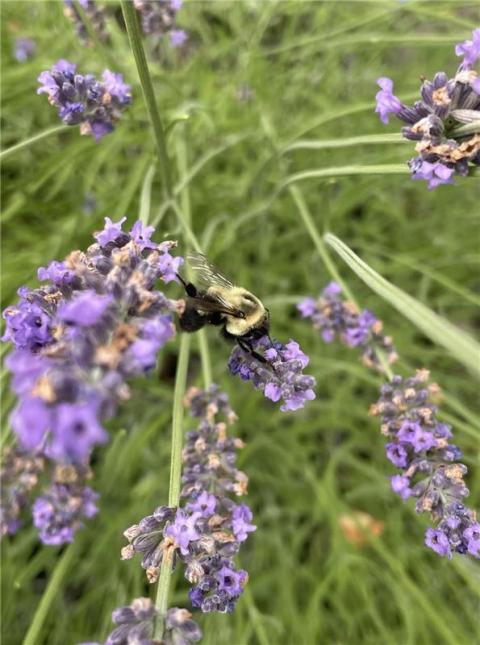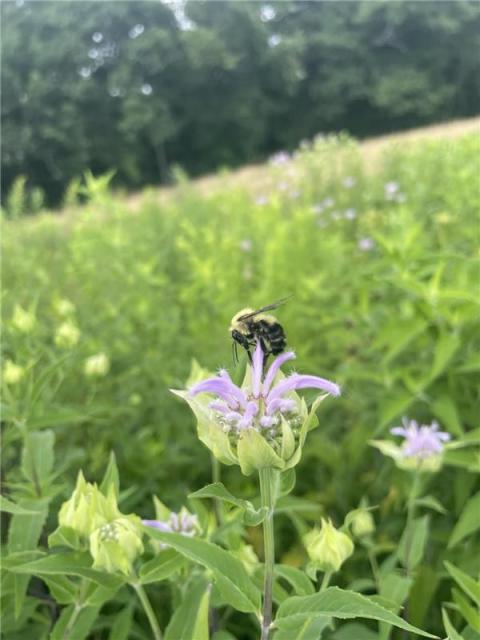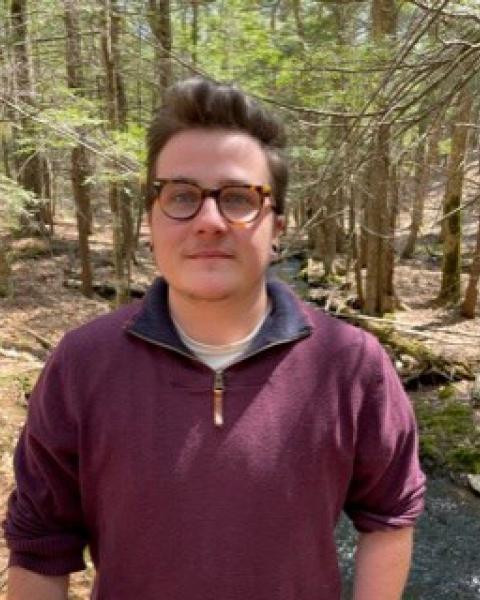Planting for Pollinators This Memorial Day Weekend
As Memorial Day weekend approaches, many gardeners across New Hampshire and the Northeast are gearing up to get plants in the ground. With hopefully the last frost behind us and summer just weeks away, this is one of the busiest—and most exciting—times to be outside preparing garden beds, visiting local nurseries and bringing home new blooms.
As gardens come to life, it's also the perfect moment to think about the bees and other pollinators that make so much of it possible. While honeybees are widely recognized, New Hampshire is home to over 300 native bee species—most of which live solitary lives and nest in the ground or in plant stems, not hives. These bees are essential for pollinating fruits, vegetables and flowering plants, and they’re active right now, searching for both food and nesting habitat.
To support these valuable pollinators this season, consider the following summer-focused gardening tips:
Choose Native Plants
Native plants are well-adapted to local conditions and provide the best food sources for native bees. They offer nectar and pollen in the forms and bloom times that local pollinators have evolved with. Aim for a mix of species that will bloom throughout the summer to provide continuous food. Not sure where to start? Follow this link to the The Xerces Society’s Native Plants for Pollinators and Beneficial Insects – Northeast website. It is an excellent resource.
Create Nesting Space
About 70% of native bees nest in the ground, often in bare or lightly vegetated areas. When prepping garden beds, consider leaving some patches of soil undisturbed and free of mulch. Cavity-nesting bees use hollow stems and wood to make their nests, so leaving some perennial stems standing or brush piles untouched during the summer can provide essential shelter.
Skip the Pesticides
Even products marketed as "safe for gardens" can harm bees and other beneficial insects. Pesticides can reduce the availability of flowering plants, contaminate nectar and pollen, and impact bee behavior and survival. Avoid chemical applications whenever possible, and explore Integrated Pest Management (IPM) strategies for more sustainable approaches to garden pests.


For those interested in taking their pollinator support a step further, the UNH Pollinator-Friendly Garden Certification—offered in collaboration with the University of Maine Extension—provides guidance and recognition for gardens that prioritize pollinator health. This program outlines clear best practices and connects participants with a growing community of pollinator stewards across the region.
This Memorial Day, as gardens are planted and landscapes refreshed, small choices—like picking native plants or skipping that extra bag of mulch—can have a big impact. Supporting pollinators doesn’t require a complete garden overhaul. It starts with thoughtful planting, a bit of messy habitat and a commitment to share space with the creatures that help gardens grow.

Follow this link to the UNH Pollinator-Friendly Garden Certification page and consider certifying your garden.
Do you love learning about stuff like this?
SUBSCRIBE TO Granite State Gardening newsletter
Got questions? The UNH Extension Yard and Garden Infoline offers practical help finding answers for your yard and garden questions.
Call toll free at 1-877-398-4769, Monday to Friday, 9 a.m. to 2 p.m., or fill out webform.

